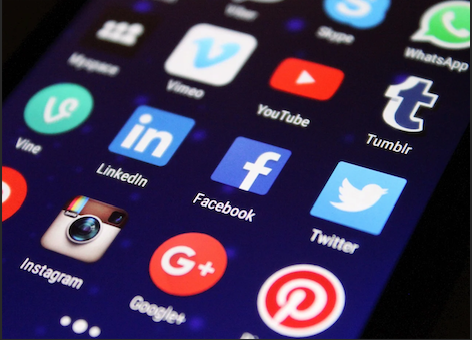Social media runs our lives. From the moment we wake up to the moment we go to sleep, our phones are bombarded with notifications from various social media sites. We spend an average of over two hour a day on these apps, according to Statistica and 72% of the American public is on at least one platform. These apps have provided many benefits including increased communication and connectivity with others; however, they also have the potential to spread hateful messages.
In the most extreme cases, social media has been used to live-stream mass shootings or petuate messages of hate. For example, in 2019, a shooter streamed to a synagogue in Germany where two people were fatally shot. The shooting occurred on Yom Kippur while the perpetrator said anti-semtic statements such as denying the Holocaust or blaming world problems on the Jews.
Smaller scale yet impactful anti-semitism is also prevelant across Twitter, Instagram, TikTok, and many other platforms. For example, the Anti-Defamation League (ADL) released a report on anti-semitism on Twitter frpm 2017 to 2018. The organization detected anti-Semitic tweets based on a set of requirements which include the use of anti-Semetic stereoytypes, the promotion of infamous anti-Semetic personalties, references to certain conspiracy theories, Holocaust denial, slurs, and certain symbols. They found 4.2 million anti-Semetic tweets or retweets from 2017-2018 posted by about 3 million unique accounts. The highest number of anti-Semetic tweets posted in one week was during December 2017 with 181,700 anti-Semitic posts and an overall weekly average of 81, 400 tweets per week.
Similarly, anti-Semitims persists on other social media sites such as Instagram. Accounts dedicated to Judaism face similar slurs and stereotypes in comment sections. For example, the Instagram account, @CrazyJewishMom, received images of swaztikas with other references to the Holocaust. But when the creator of the account reported this image to Instagram, the company said the photo “didn’t violate their community guidelines.” Moreover, the account’s creator says she receives similar comments and images frequently, demonstrating targeted hate speech that Jewish Instagram accounts face.
Jewish teenagers on TikTok face similar issues, according to NBC News. Jewish teenagers on the platform say they experience anti-Semitim every time they post regardless of its content. Some of this hate links the actions of the Israeli government to the Jewish people as a whole. Other comments also include references to the Holocaust and Hitler’s regime. While TikTok’s administration has spoken out against hate speech, these posts remain prevalent and highlight the pervasiveness of anti-Semitic langauge that continues to exist. Some users who have not faced anti-Semitic language directly in face-to-face interaction first experieced these steryotypes on social media platforms like TikTok.
Despite anti-Semitism’s rise on social media, these platforms can also be used to combat harmful mesages. On Facebook, Instagram, and Twitter, Holocaust survivors released video messages retelling their stories as part of the #ItStartedWithWords movement in hopes of educating more people about the horrors of the Nazi regime.“There aren’t too many of us going out and speaking anymore, we’re few in numbers but our voices are heard,” Holocaust survivor Sidney Zoltak told AP News in a phone interview.

